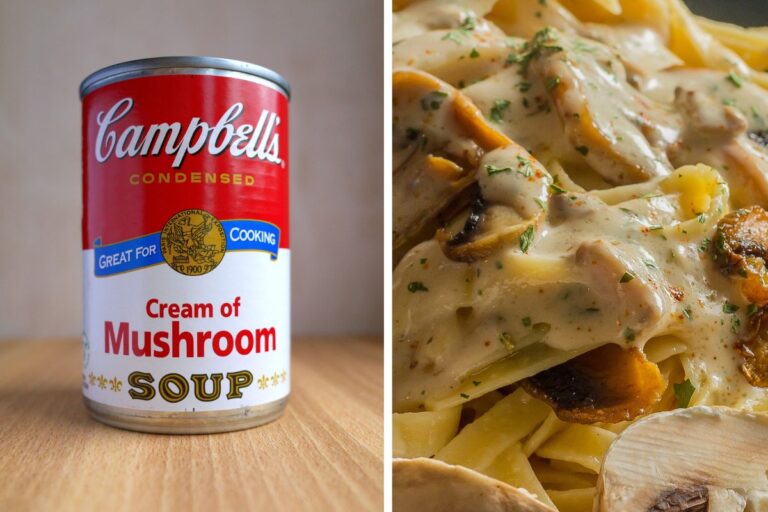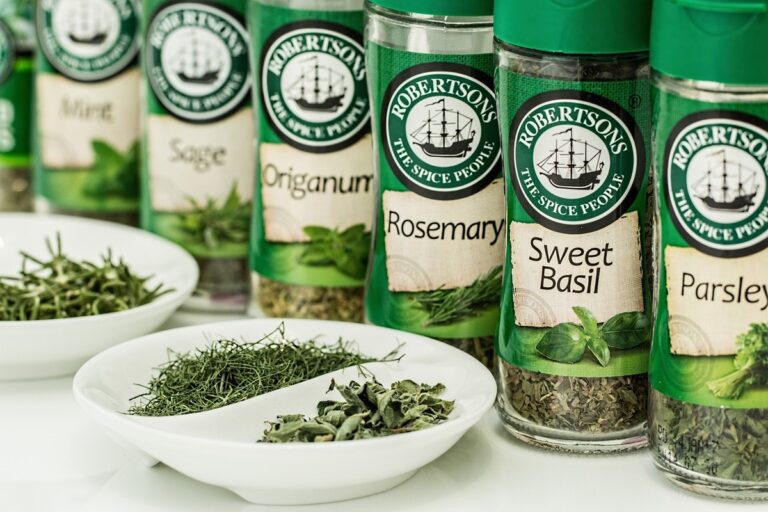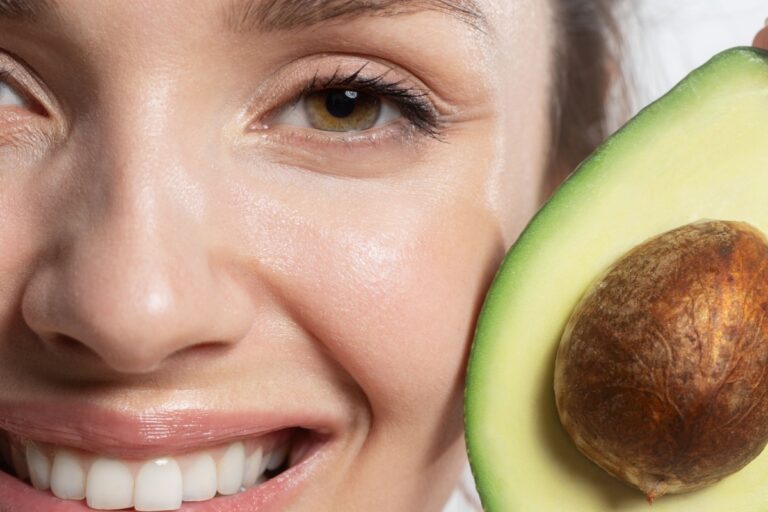15 Surprising Foods with More Protein Than Eggs
Protein is essential for building and repairing tissues, making it an important part of a balanced diet. Eggs are a well-known source of protein, but several other foods can provide even more protein per serving.
Whether you’re a vegetarian, vegan, or just looking for variety, these 15 surprising foods can offer a protein boost and add some excitement to your meals.
Greek Yogurt
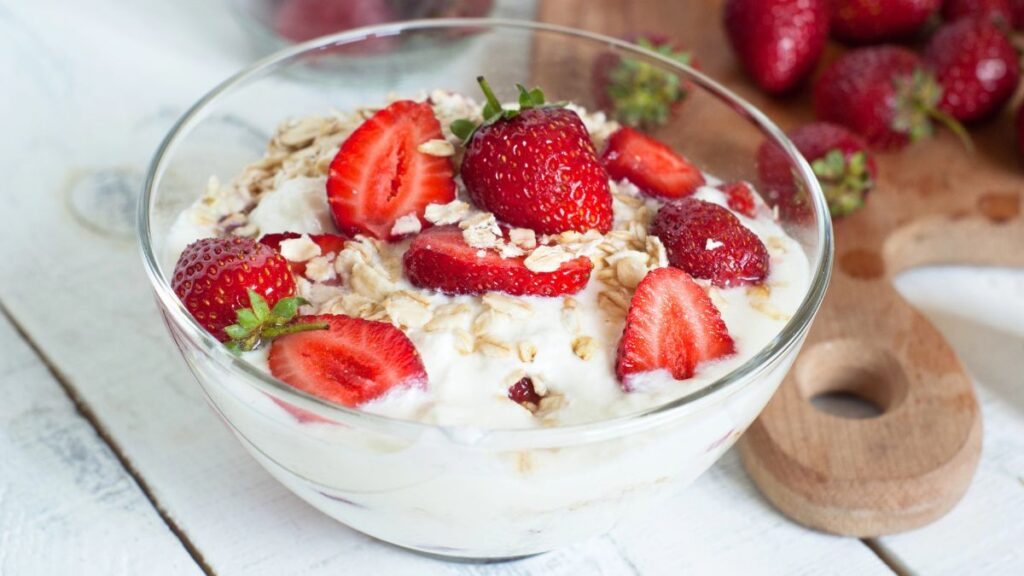
Greek yogurt is a creamy and delicious dairy product that stands out for its high protein content. One serving of Greek yogurt typically contains around 15 to 20 grams of protein, which is double the amount found in a single egg.
This makes it an excellent breakfast, snack, or light dessert. Greek yogurt is protein-rich and packed with probiotics that benefit your digestive health. It can be enjoyed plain or flavored, and you can add fruits, nuts, or a drizzle of honey to enhance its taste. Greek yogurt’s thick, creamy texture makes it a satisfying choice that can help keep you full longer.
Cottage Cheese
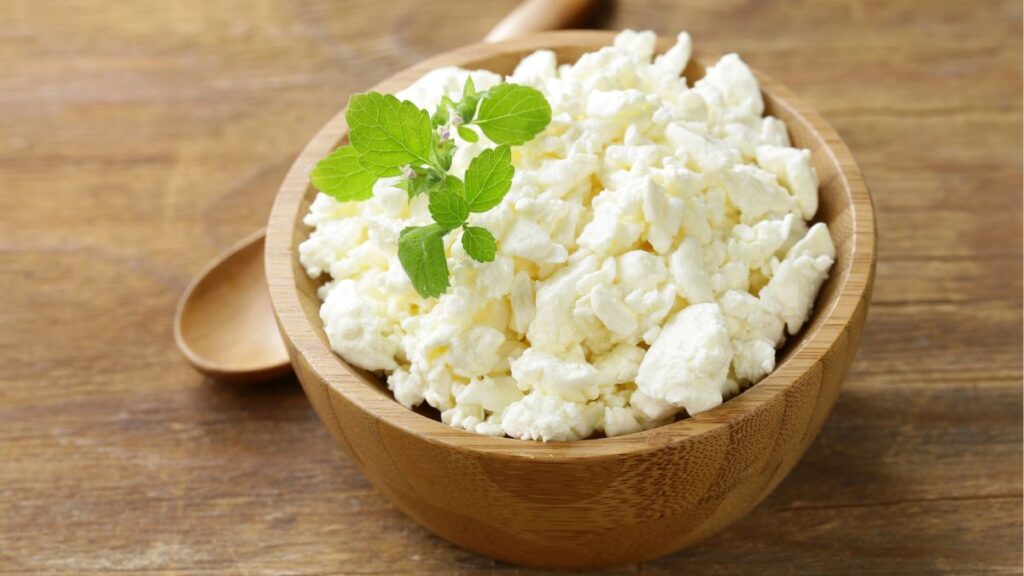
Cottage cheese is another dairy product that’s incredibly rich in protein. A cup of low-fat cottage cheese can contain about 28 grams of protein, which is significantly more than the 6 grams found in an egg. Cottage cheese is versatile and can be incorporated into a variety of dishes. It’s great on its own, mixed with fruits, or added to salads for an extra protein boost.
Additionally, cottage cheese is low in fat and calories, making it a healthy option for those looking to manage their weight. Its mild flavor makes it easy to blend into both sweet and savory dishes, providing a substantial protein hit without overwhelming your taste buds.
Lentils
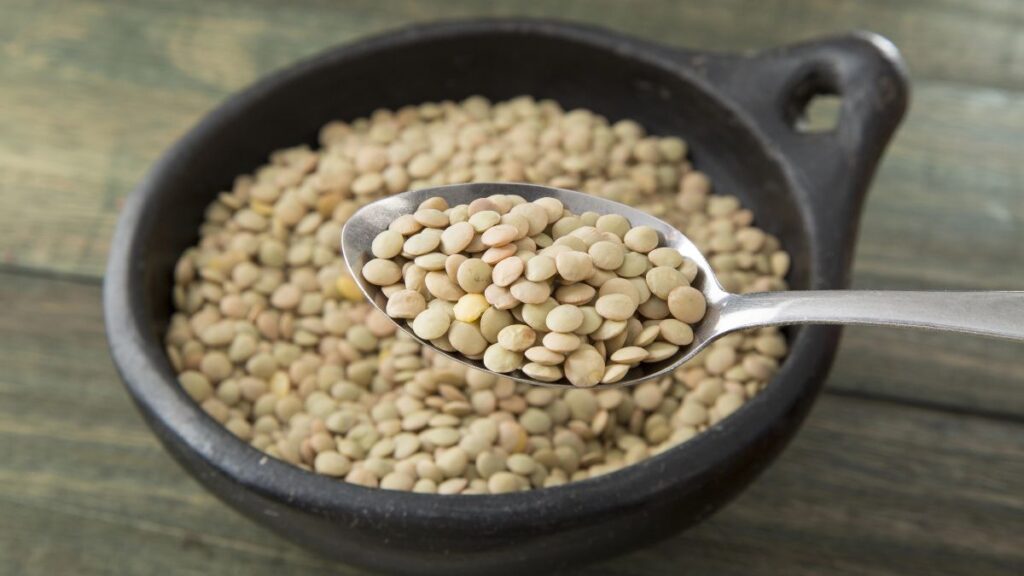
Lentils are a type of legume that is not only high in protein but also rich in fiber and essential nutrients. One cup of cooked lentils provides about 18 grams of protein, three times more than an egg. They are a great plant-based protein source, making them an excellent choice for vegetarians and vegans. Lentils can be used in various dishes, including soups, stews, and salads.
Lentils absorb flavors well and can be seasoned to taste, making them a versatile ingredient in many recipes. They are also a good source of iron and other minerals, which contribute to overall health.
Quinoa
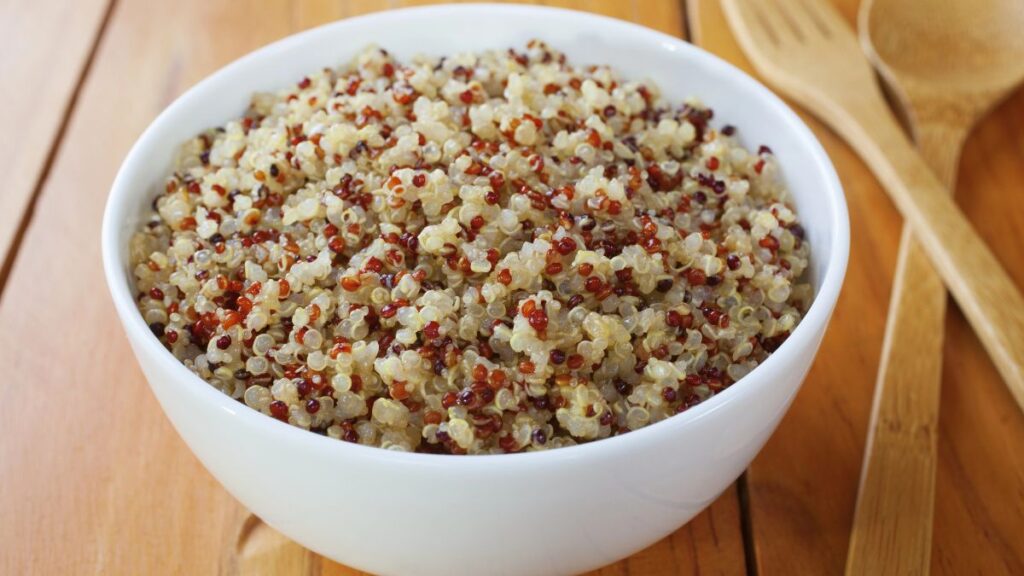
Quinoa is a grain-like seed that is celebrated for its high protein content and nutritional value. A cup of cooked quinoa provides about 8 grams of protein, which, while slightly less than some other items on this list, still surpasses the protein content of an egg.
Quinoa is also a complete protein, meaning it contains all nine essential amino acids needed by the body. This makes it an excellent choice for those on a plant-based diet. Quinoa is versatile and can be used as a side dish, added to salads, or incorporated into grain bowls. Its mild, nutty flavor pairs well with a variety of ingredients, making it a flexible addition to many meals.
Chickpeas
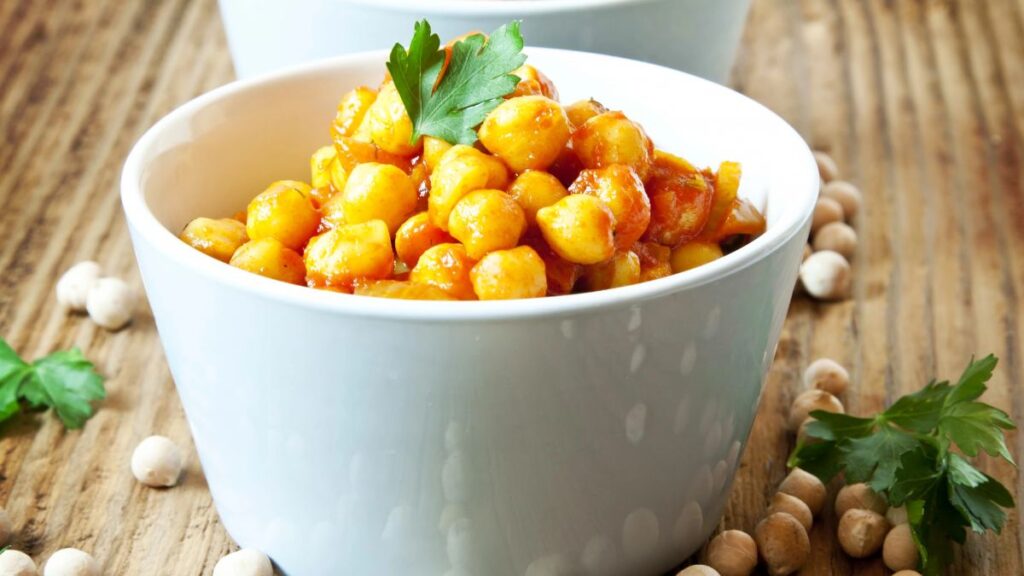
Chickpeas, also known as garbanzo beans, are another high-protein legume that offers a significant protein boost. One cup of cooked chickpeas contains about 15 grams of protein, more than double the amount found in an egg.
Chickpeas are incredibly versatile and can be used in a variety of dishes, from salads and stews to hummus and curries. They’re also a great source of fiber, which aids in digestion and promotes a feeling of fullness. Whether you’re making a hearty chickpea salad or blending them into a creamy hummus, chickpeas are a nutritious and satisfying choice.
Almonds
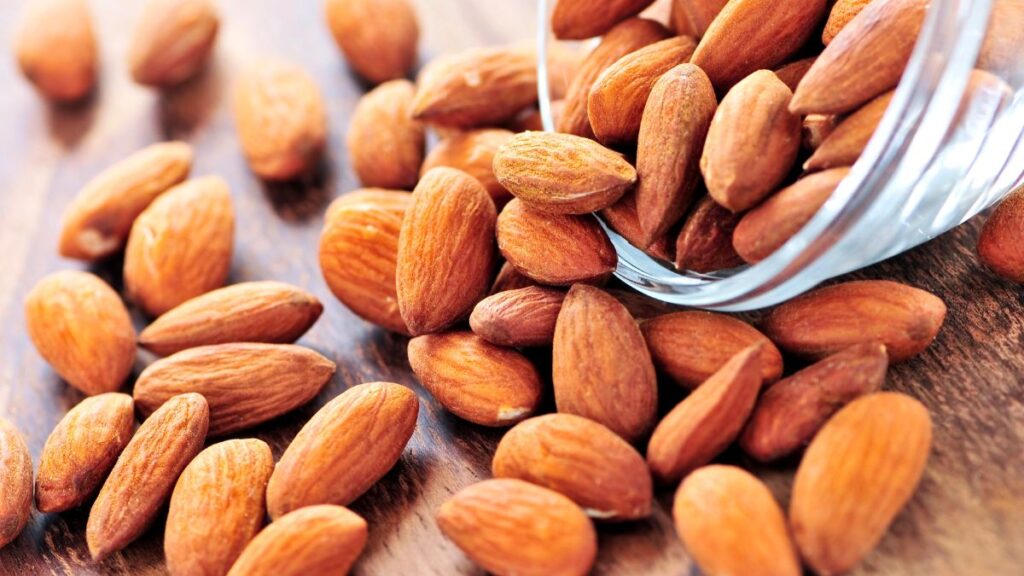
Almonds are a nutrient-dense nut that offers a substantial amount of protein. A quarter-cup serving of almonds provides about 8 grams of protein, surpassing the protein content of an egg. Almonds are also rich in healthy fats, fiber, vitamins, and minerals.
They can be enjoyed as a snack, added to salads, or used to make almond butter. Almonds are also a good source of vitamin E and magnesium, which support overall health. Their crunchy texture and slightly sweet flavor make them a delicious and nutritious addition to many dishes.
Tofu
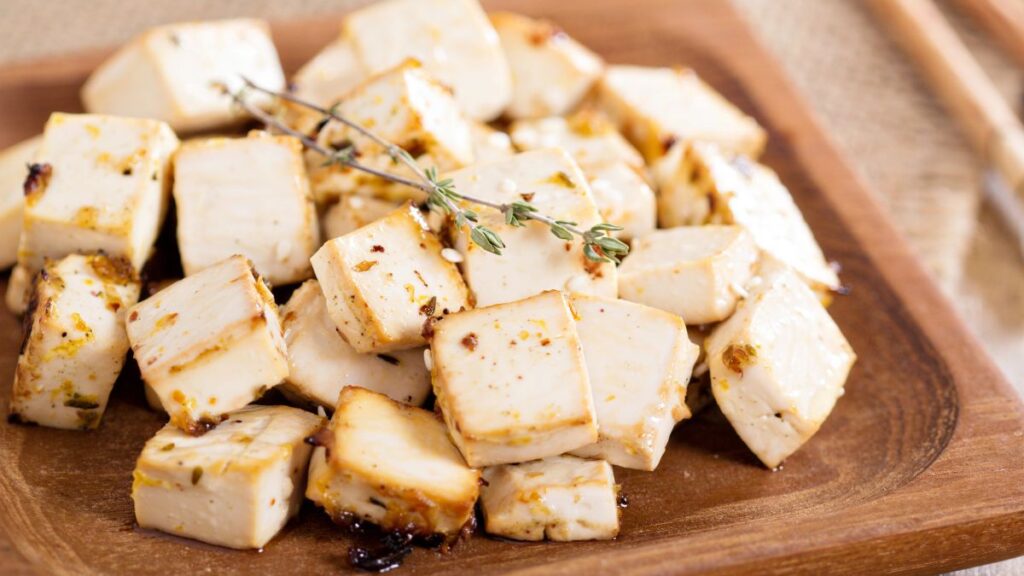
Tofu, made from soybeans, is a popular protein source for vegetarians and vegans. A half-cup serving provides about 10 grams of protein, making it a great alternative to animal-based proteins.
Tofu has a mild flavor and absorbs the tastes of the ingredients it’s cooked with, making it highly versatile. It can be used in various dishes, including stir-fries, soups, and salads. Additionally, tofu is low in calories and fat, which makes it a healthy choice for those looking to manage their weight while still getting a substantial protein intake.
Edamame
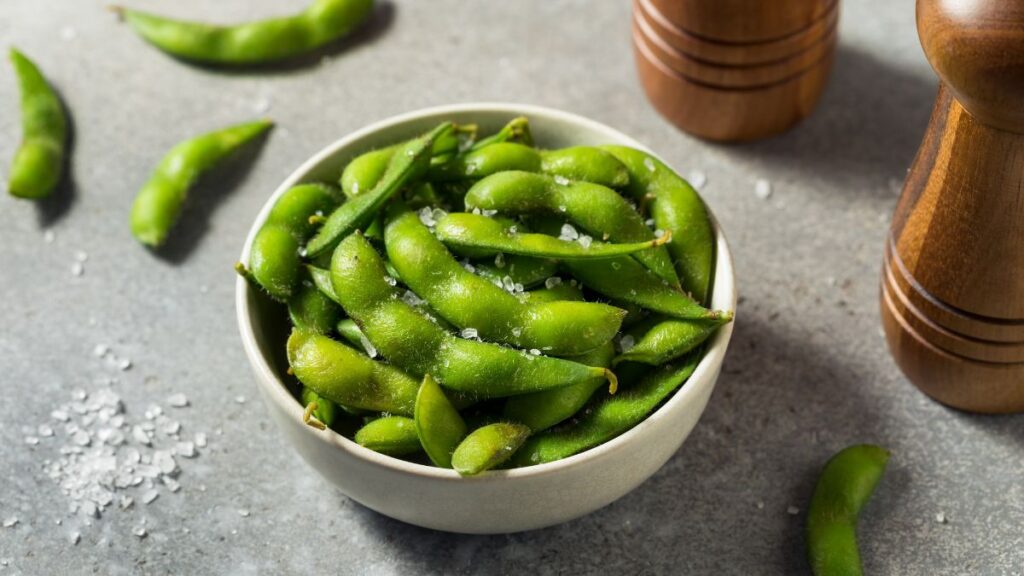
Edamame, or young soybeans, are another excellent source of protein. One cup of cooked edamame provides around 17 grams of protein, making it a standout option for boosting your protein intake.
Edamame is also rich in fiber, vitamins, and minerals, including folate and iron. They’re great as a snack, or you can add them to salads, soups, or stir-fries. Edamame has a slightly sweet and nutty flavor that pairs well with a variety of dishes. It’s a tasty and nutritious way to increase your protein consumption and add variety to your diet.
Tempeh
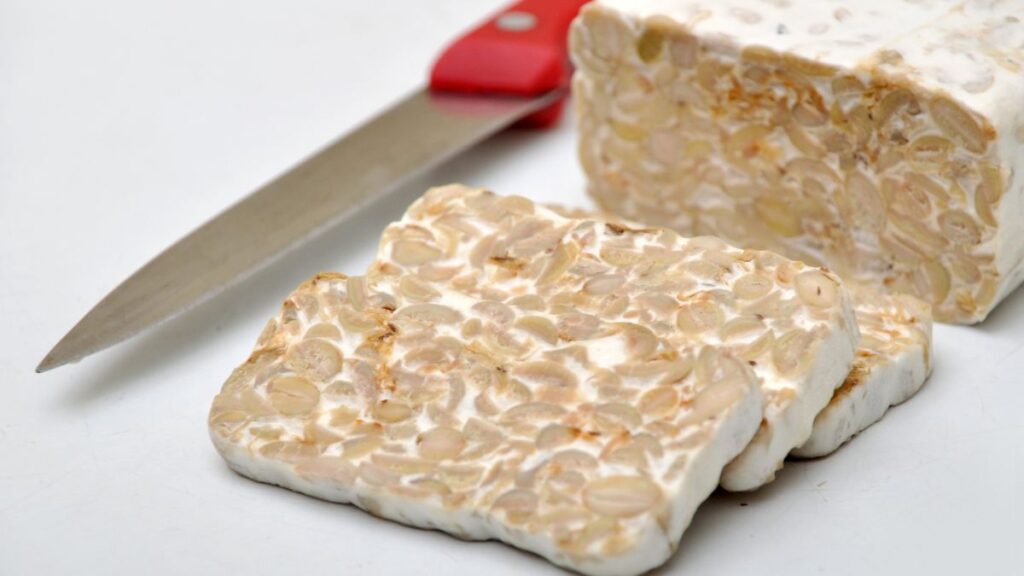
Tempeh is a fermented soy product that offers a substantial protein boost. A half-cup serving contains about 15 grams of protein, making it a great option for those looking to increase their protein intake.
Tempeh has a firm texture and a nutty flavor, making it an excellent meat substitute. It’s versatile and can be used in a variety of dishes, such as stir-fries, sandwiches, or salads. The fermentation process also makes tef rich in probiotics, which can benefit digestive health.
Peanut Butter
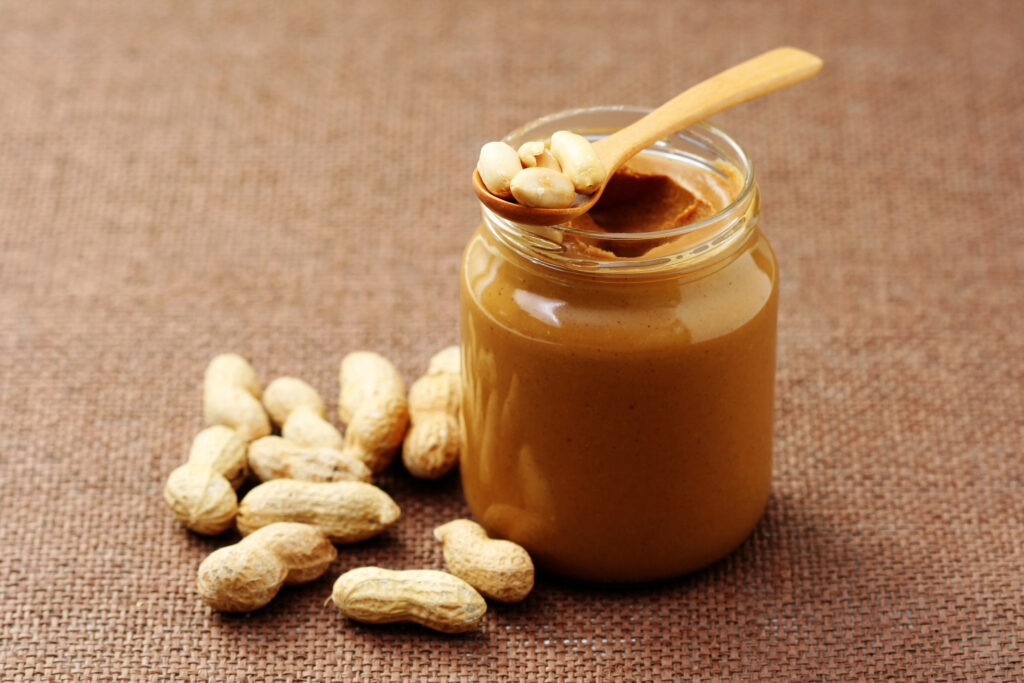
Peanut butter is a popular and tasty source of protein. Two tablespoons of peanut butter contain around 8 grams of protein, making it a convenient and delicious option. Peanut butter is also a good source of healthy fats, vitamins, and minerals.
It can be spread on toast, used in smoothies, or enjoyed as a dip for fruits and vegetables. Opt for natural peanut butter to avoid added sugars and unhealthy fats. Peanut butter’s rich, nutty flavor makes it a satisfying addition to many meals and snacks.
Chicken Breast

Chicken breast is a lean meat that is well-known for its high protein content. A 3-ounce serving of cooked chicken breast provides about 27 grams of protein, significantly more than an egg. Chicken breast is versatile and can be cooked in various ways, including grilling, baking, or sautéing.
It’s low in fat and calories, making it a great choice for those looking to maintain a healthy diet. Chicken breast is also rich in essential nutrients such as niacin and selenium. Pair it with vegetables or whole grains for a balanced and protein-rich meal.
Beef Jerky
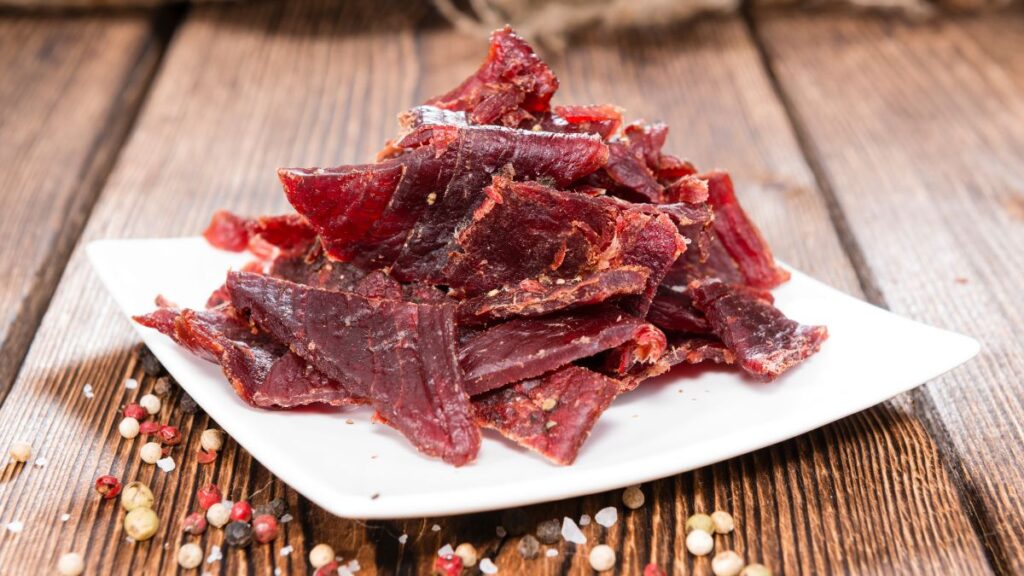
Beef jerky is a convenient and high-protein snack. A one-ounce serving of beef jerky provides about 10 grams of protein, which is more than an egg. It’s a great on-the-go option for those needing a quick protein boost.
Beef jerky comes in various flavors and can be enjoyed alone or added to salads and sandwiches. However, be cautious of the sodium content in some brands, as excessive salt can be a concern. Choosing low-sodium varieties can help you enjoy beef jerky without overdoing it on salt.
Salmon
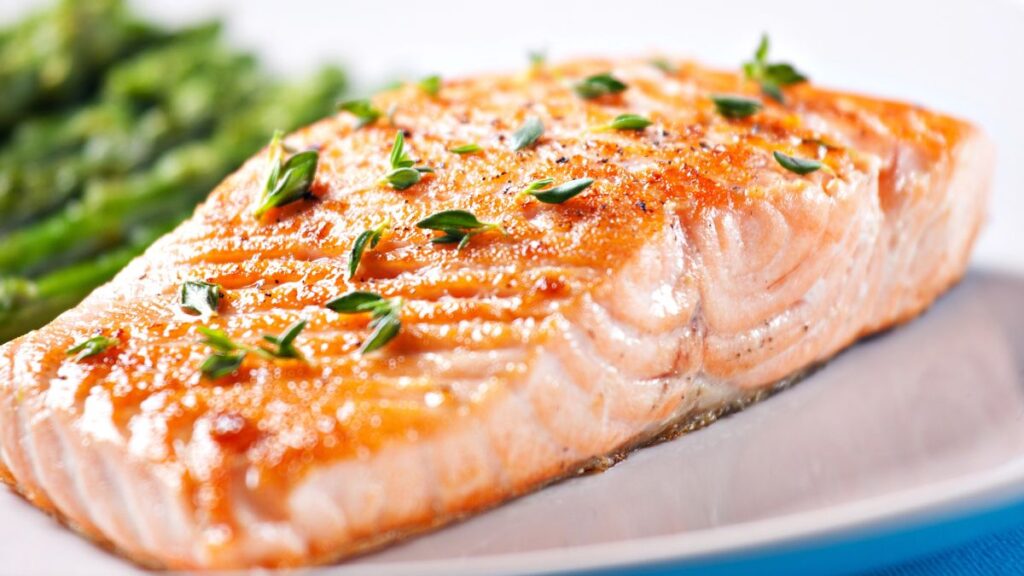
Salmon is a nutritious fish that is high in both protein and omega-3 fatty acids. A 3-ounce serving of cooked salmon provides about 22 grams of protein. It also offers a range of other health benefits, including supporting heart health and reducing inflammation.
Salmon can be prepared in various ways, such as grilling, baking, or pan-searing. Its rich, flavorful taste and tender texture make it a favorite among many. Enjoy it with a side of vegetables or in a salad for a complete and healthy meal.
Tuna
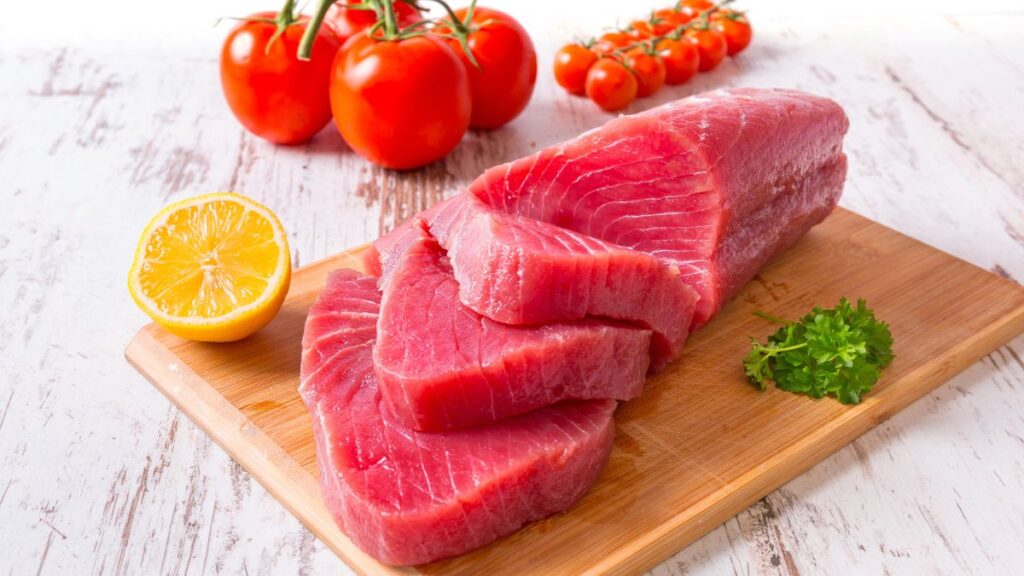
Tuna, particularly the canned variety, is a convenient and protein-rich food. A 3-ounce serving of tuna provides about 22 grams of protein, which is more than what you’d get from several eggs combined.
Tuna is also a good source of omega-3 fatty acids, which are beneficial for heart health. It can be used in salads, sandwiches, or as a topping for crackers. Its mild flavor makes it a versatile ingredient that pairs well with various seasonings and sauces.
Chia Seeds

Chia seeds are tiny but nutrient-dense, providing a surprising amount of protein. Two tablespoons of chia seeds offer about 4 grams of protein, which may seem modest but adds up when used in various dishes. Chia seeds are also rich in fiber, omega-3 fatty acids, and antioxidants.
They can be added to smoothies yogurt, or used to make chia pudding. Their ability to absorb liquid and form a gel-like consistency makes them a great ingredient for making healthy and satisfying snacks. Incorporating chia seeds into your diet can boost your protein intake and provide additional health benefits.
15 Practical Ways to Save Money During Retirement

Entering retirement doesn’t have to mean giving up a comfortable lifestyle. With strategic planning and simple adjustments, it’s possible to make the most of your retirement income and enjoy a financially secure life.
15 Practical Ways to Save Money During Retirement
15 Foods Only The Wealthy and Elite Can Eat Now

Culinary trends are constantly evolving, and some foods have become more than just sustenance—they’ve become status symbols reserved for the elite.



